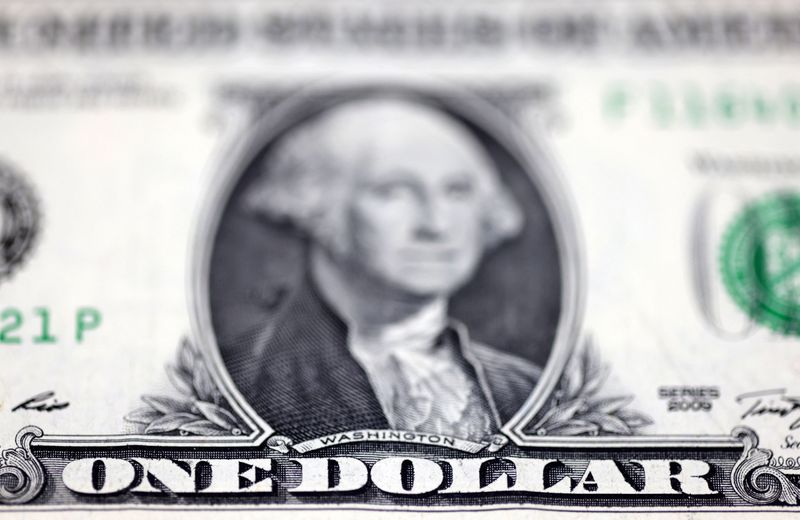Investing.com – The US dollar retreated on Thursday, giving up some of its strong post-election gains ahead of the latest Federal Reserve meeting, while sterling rose as Bank of England policymakers also collected.
At 05:00 ET (10:00 GMT), the Dollar Index, which tracks the greenback against a basket of six other currencies, fell 0.2% to 104.790, after rising to the highest level since early July previous session in the wake of Donald Trump. Trump’s election victory.
During the previous session, the index posted its biggest single-day gain since September 2022.
Dollar retreats ahead of Fed meeting
The dollar rose to a four-month high on Wednesday as the prospect of a Republican victory in Congress provided a much easier path for a Donald Trump administration to implement its tariffs and immigration policies, widely seen as inflationary .
This could prompt the Federal Reserve to cut rates at a slower and shallower pace, which would boost the dollar.
“The challenge for investors is how to position themselves now,” ING analysts said in a note. “The risk of a US election event has passed with a surprisingly clean outcome, but Trump’s policy agenda won’t emerge until 2025, and perhaps even late into 2025.”
For now, attention will focus on the latest , which will conclude later in the session. Markets have positioned themselves for another rate cut, this time by 25 basis points instead of the massive 50 basis points cut in September.
“We doubt that Chairman Jay Powell is willing to endorse the market’s less dovish repricing of the Fed’s easing cycle by saying that future Republican policy is inflationary. It would be a bullish dollar surprise if he did,” ING said.
Sterling looks at Bailey’s comments
In Europe, yields rose 0.2% to 1.2904, with another 25 basis point rate cut likely to be announced later in the session, the second cut since 2020, following a rate cut in August.
Such a decision would be widely expected, with the subject of debate being whether policymakers signal further cuts following the government’s inflationary budget.
“There is a downside risk to UK yields and the British pound today [Governor Andrew] Bailey downplays the significance of the UK budget for the BoE easing cycle,” ING said.
rose 0.2% to 1.0753, after falling to 1.0682 for the first time since July 27 when Donald Trump was re-elected.
The euro has regained some ground despite the collapse of the German government. German Chancellor Olaf Scholz said on Wednesday he would call a confidence vote on January 15, which could pave the way for early federal elections in March.
This followed Scholz’s dismissal of Finance Minister Christian Lindner of the Free Democrats after a series of budget disputes, causing the three-party ruling coalition to collapse.
“The prospect of a new German government in March next year could actually increase the likelihood of fiscal stimulus and give Europe better ammunition to resist Trump’s trade agenda in 2025,” ING said.
Yuan wins after recent beatings
fell 0.2% to 7.1609, with the yuan rising after being hit by the prospect of a Trump presidency as he has pledged to impose steep trade tariffs on the country.
The prospect of a new trade war does not bode well for the Chinese economy, but Beijing is also expected to roll out more fiscal stimulus to guard against possible tariffs.
The National People’s Congress started a four-day meeting earlier this week and is expected to outline plans to increase budget spending and support growth.
fell 0.5% to 153.94 after the pair hit a three-month high in the previous session, prompting warnings from Japanese ministers about possible intervention.
rose 1% to 0.6631, recovering from losses in the previous session, with data showing the country’s trade balance shrank more than expected in September, due to declining commodity exports.


